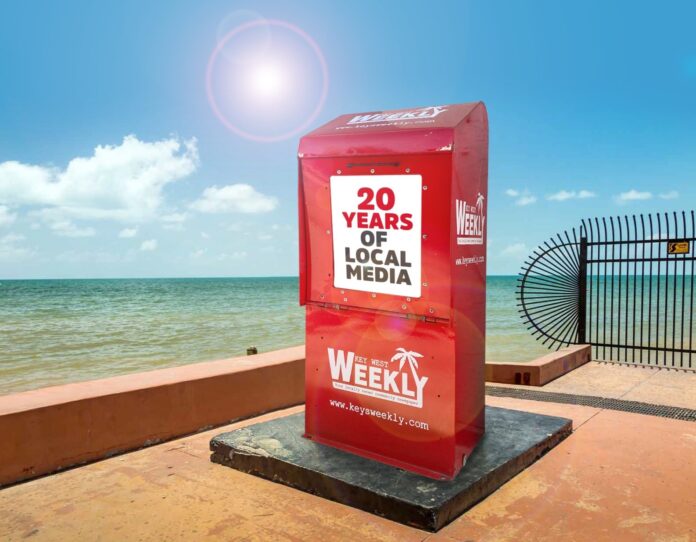Marc Caputo, a national political reporter at The Messenger, a digital news outlet, was pleased to hear Keys Weekly is celebrating 20 years.
A locally owned and operated newspaper born in Marathon in 2003, the Weekly hasn’t just survived the ever-changing news business, it’s continued to thrive as both a powerful print and digital presence, publishing three editions across the Florida Keys each week.
That matters to journalists like Caputo who learned the trade in a small town local newsroom, in his case Key West.
“You should only do this job because you like doing it, and because there’s really no other job you can do,” Caputo said in an interview this week. “There are a thousand great stories out there. And people love to tell stories. That’s the essence of what we do. It’s great that you guys are doing it.”
Caputo has covered a series of presidential elections and assorted political scandals as one of Florida’s top reporters. He can trace his career in journalism back through NBC News, Politico and the Miami Herald.
But Caputo got his start in the Keys. His first job was crime reporter at the daily paper in Key West, where he grew up after his family moved to the island in the late 1970s.
“I just learned on the job,” Caputo told Keys Weekly in an interview. “The thing about Key West, it’s a little laboratory. It’s a small town that has this cosmopolitan flair to it. It’s a place you can be a reporter on your bicycle.”
Caputo would go on to become immersed in politics at the highest levels. He said he was schooled in the basics right here in the Keys.
“Covering the Key West police department as my first job really showed me that politics is in everything,” Caputo said.
“Aristotle says man by nature is a political animal but boy it was certainly true of the Key West police department,” he said. “There was this civil service board scandal where this promotional examination was either lost or stolen. There was all this vicious backstabbing at the time.”
Caputo attended Harris School and Glynn Archer elementaries before Horace O’Bryant and Key West High School. Small town life taught him how to talk to people – and how, as a reporter, to get people to tell him what was happening.
“We’re in the information business,” Caputo said. “In order for people to give you information they kind of have to trust you, and they have to like you.”
Caputo has been on the frontlines of watching the age-old newspaper business model unravel over the years. Craigslist’s free ads destroyed the newspaper classifieds that had always paid a ton of the operating expenses. As the internet took hold, advertisers bailed and social media took the place of the daily headlines.
“We’re in such an era of information democratization,” Caputo said. “So much of the stuff is free just erecting paywalls sometimes is no guarantee. I don’t think a daily newspaper product is going to work any more.”
Local newspapers bought and run by out-of-towners or simply disappearing has changed how people perceive the media, Caputo said.
“A lot of conservatives don’t trust the media because they think the media’s liberal and in many cases they’re right,” Caputo said. “All these New York publications are drawing on people from New York and they’re like-minded. There is no real stability of say, the midwest, really reflected in mainstream media any more.”
Caputo’s advice for local journalists: just keep reporting.
“The best thing for folks like us is to focus on writing the news as accurately as we can, as fairly as possible and keep doing what we enjoy,” he said.

















